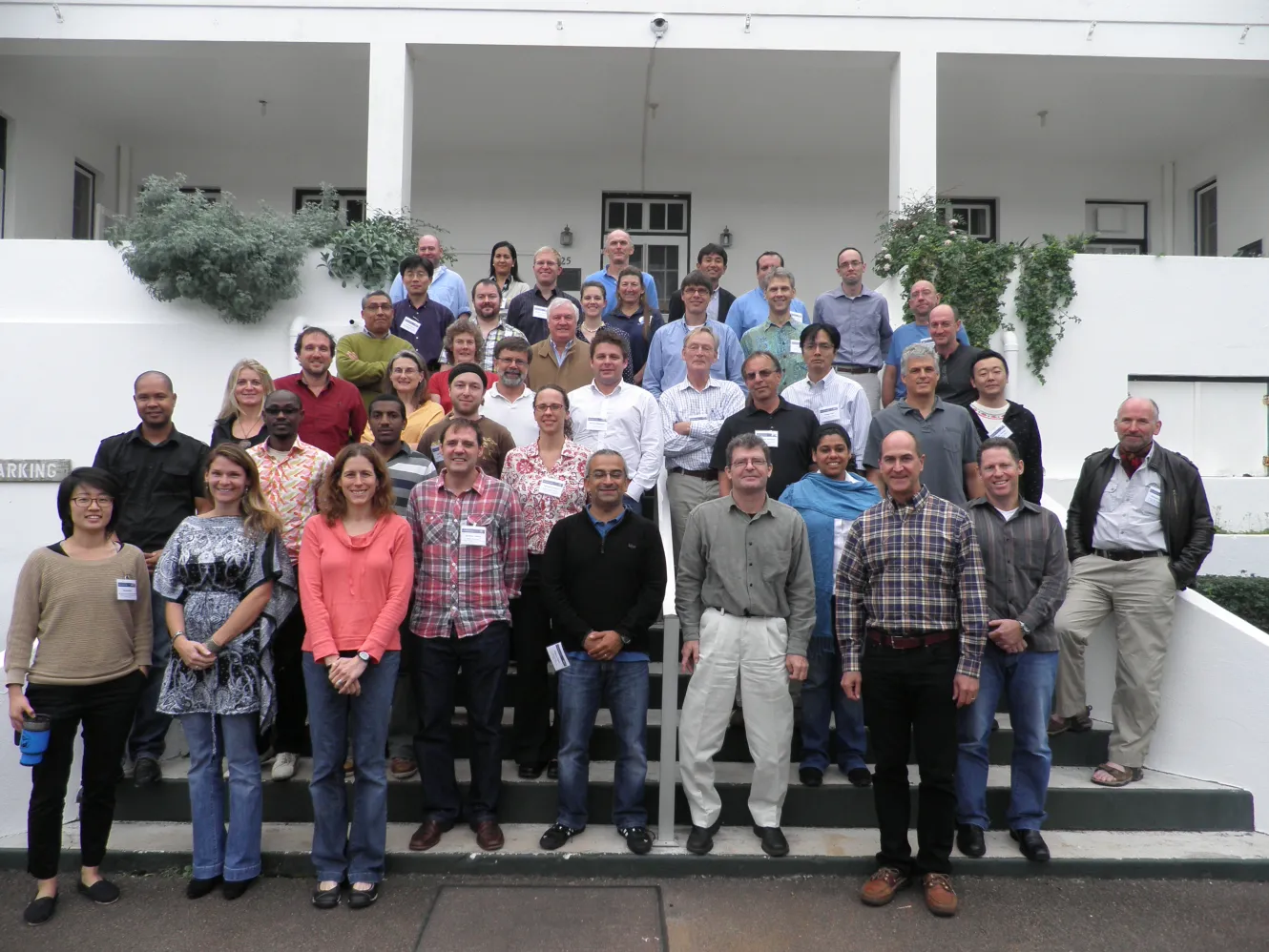The workshop took place November 28-30, 2012 at the Bermuda Institute of Ocean Sciences (BIOS). The workshop was jointly convened by the IOCCP and the Ocean Carbon & Biogeochemistry (OCB) Program, and focused on biogeochemical time-series methods and data intercomparison.
Workshop Reports
The full workshop report distributed in June 2013 is available 
The EOS meeting report published on 23 April 2013 is available 
An international biogeochemical time-series network
An important outcome of the November 2012 workshop was an establishment of an international network of ship-based biogeocemical time series. This is part of a continually growing need for coordination and collaboration between PI's working at ship-based time series worldwide. A permanent WEB PORTAL was initiated to improve communication (eg. through en email list allowing the community to exchange information directly), provide a hub for relevant documents and more based on your feedback which is always welcome!
Workshop Rationale and Objectives
Ocean time-series represent one of the most valuable tools scientists have to characterize and quantify ocean carbon fluxes and biogeochemical processes and their links to changing climate. In order to acquire a more thorough understanding of natural cycles and human-driven changes in the global oceans, it is important that time-series methodologies (sampling and analytical protocols) be transparent and consistent. This workshop provided an opportunity to convene representatives from global marine biogeochemical time-series sites to review current methodologies being used at the sites, with the aim of standardizing sampling and analytical protocols for key biogeochemical parameters being measured across sites. The workshop goals and outcomes included the following:
- Review current oceanographic time-series core sampling and analytical methodologies and rationale behind protocol differences
- To the extent possible, attempt to define standardized methods applicable across time-series
- Attempt to reconcile differences in variable nomenclature
- Examine new techniques available for more accurate and simplified measurements
- Generate a list of suggestions on how automated sensors may improve the type and accuracy of core measurements taken at time-series sites
- Coordinate a best practices publication on sampling and measurement protocols to facilitate data inter-comparison across time-series sites
Workshop Sponsors
IOCCP and OCB gratefully acknowledge the support of IOC-UNESCO, SCOR, NSF, NASA, NOAA, and BIOS for this workshop.

